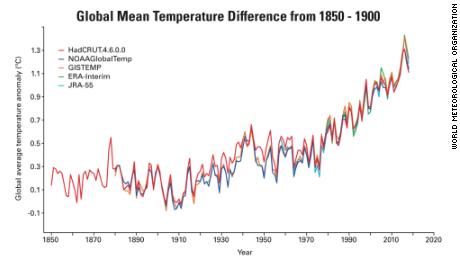The average global temperature is up 0 94 c 1 7 f since 1880

The Average Global Temperature is up 0.94°C (1.7°F) since 1880.
The global temperature of our planet has been on an upward trend for over a century. Since 1880, the average global temperature has risen by approximately 0.94°C (1.7°F). This significant increase has had a profound impact on our environment and the delicate balance of our planet’s climate systems.
The data, collected and analyzed by NASA, clearly shows a steady and consistent rise in global temperatures over the years. This rise is primarily driven by the increase in greenhouse gas emissions resulting from human activities, such as burning fossil fuels and deforestation. These actions have led to a heightened concentration of heat-trapping gases in our atmosphere, intensifying the greenhouse effect and causing our planet to warm.

The consequences of this rise in temperature are far-reaching and alarming. The warming of the planet has resulted in the melting of polar ice caps, leading to rising sea levels. This, in turn, poses a significant threat to coastal cities and low-lying areas, increasing the risk of flooding and displacing millions of people worldwide.
Furthermore, increased global temperature has disrupted weather patterns, causing more frequent and intense extreme weather events such as heatwaves, hurricanes, and droughts. These events not only endanger lives but also have severe economic impacts, with billions of dollars spent on recovery and rebuilding efforts each year.
It is crucial to understand that the rise in global temperatures affects not only the environment but also ecosystems and biodiversity. Many species are struggling to adapt to the rapidly changing climate, leading to shifts in their habitats and potential extinction of vulnerable species. The delicate balance of nature is at stake.
To address this pressing issue, global cooperation and collective action are imperative. Governments, organizations, and individuals must come together to reduce greenhouse gas emissions, transition to renewable energy sources, and implement sustainable practices. Additionally, investing in technologies to mitigate the effects of climate change and adapting to the changing environment is crucial.
We must act now to limit further global temperature increases and protect our planet for future generations. By understanding the significance of the 0.94°C (1.7°F) rise in the average global temperature since 1880, we can promote awareness and mobilize efforts to combat climate change, ensuring a more sustainable and resilient future.
Source: NASA’s Earth Observatory
Tags
Share
Related Posts
Quick Links
Legal Stuff

